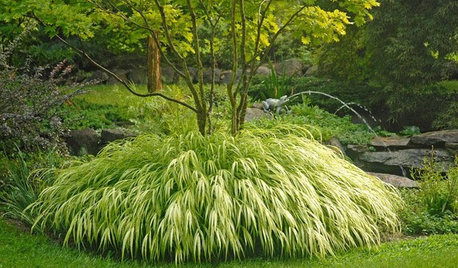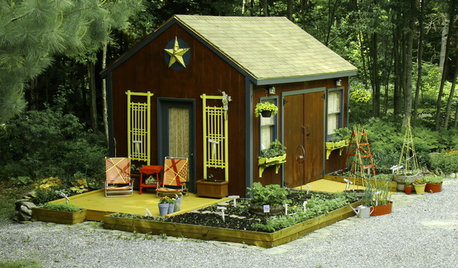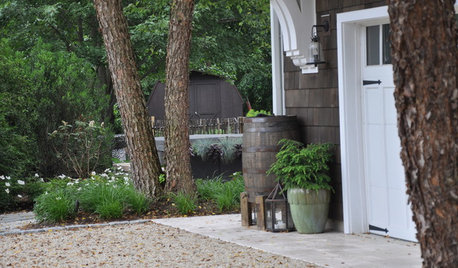Can I Dig Horse Manure In & Plant Now?
abrogard
12 years ago
Related Stories

GARDENING GUIDESThe Poop Scoop: Enrich Your Soil With Good Old Manure
Get over the ick factor already — this natural super-ingredient for soil has so many benefits, you'll wonder why you ever went chemical
Full Story
DECORATING GUIDESThe '70s Are Back. Can Ya Dig It?
No need to cringe. These 21 groovy blasts from the past are updated to look fabulous today
Full Story
URBAN GARDENSPlant a Garden That Can Move With You
Think mobile when planning your outdoor space and you can enjoy it wherever you move next
Full Story
GARDENING GUIDESGarden Myths to Debunk as You Dig This Fall and Rest Over Winter
Termites hate wood mulch, don’t amend soil for trees, avoid gravel in planters — and more nuggets of garden wisdom
Full Story
PRODUCT PICKSGuest Picks: 20 Gorgeous Perennials to Plant Now
Take advantage of warm spring weather to create a colorful garden with blooming plants, succulents and ornamental grasses
Full Story
GARDENING AND LANDSCAPINGDig This Garden Shed Makeover for Less Than $300
New paint, accessories and raised vegetable beds turn a drab outpost into a colorful charmer
Full Story
BASEMENTSRoom of the Day: Family Digs In for a Chic New Kitchen and Dining Area
When a homeowner needs to free up kitchen space for her home bakery business, the only way to go is down
Full Story
ECLECTIC HOMESHouzz Tour: A New Look for Former Student Digs
An ill-treated Victorian in England becomes a more open, extended and aesthetically appealing family home
Full Story
WORLD OF DESIGNDigging for Gold in Old Danish Designs
Firms not only are reissuing works by popular midcentury designers, they’re also producing pieces from once-rejected sketches
Full Story
SAVING WATER6 Reasons Why You Should Save Your Rainwater Now
Collect and store during the rainy season so you’ll have water ready for irrigation when you need it
Full StoryMore Discussions






Masbustelo
Kimmsr
Related Professionals
Jennings Landscape Architects & Landscape Designers · Otsego Landscape Architects & Landscape Designers · San Juan Landscape Architects & Landscape Designers · Edmond Landscape Contractors · Milford Landscape Contractors · Surprise Landscape Contractors · Fort Wayne Landscape Contractors · Madera Landscape Contractors · Morrisville Landscape Contractors · Antioch Landscape Contractors · Baltimore Decks, Patios & Outdoor Enclosures · Dracut Decks, Patios & Outdoor Enclosures · Draper Decks, Patios & Outdoor Enclosures · Green Bay Decks, Patios & Outdoor Enclosures · Harrisburg Decks, Patios & Outdoor Enclosuresvermontkingdom
bi11me
abrogardOriginal Author
nancyjane_gardener
abrogardOriginal Author
Kimmsr
Masbustelo
gardenlen
nancyjane_gardener
abrogardOriginal Author
bi11me
gardenlen
Kimmsr
abrogardOriginal Author